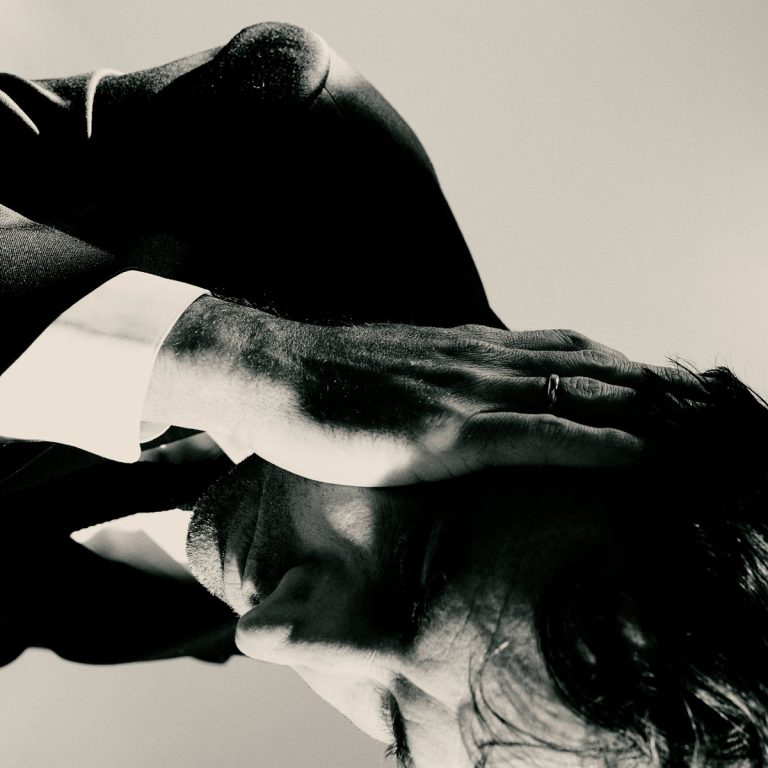Andrew Bird might be riding the biggest wave of success in his career to date – a Grammy nomination for his last album, 2019’s My Finest Work Yet; a starring role in the Fargo TV series; soundtracking a star-studded Judd Apatow film – but he’s still kept up by the thoughts in his head. His latest album, Inside Problems, is weaved together from sleepless, middle-of-the-night thoughts written and arranged into tangible reflections on the world. Gently explorative at points, frustrated at not finding the answer at other times, Inside Problems can feel like you’re watching Bird doing the complicated math of life in real time.
His musings are sardonic and amusing (“I mean listen / What if the world goes spinning off its axis / And what if the moon begins to wane before it waxes?”), perplexed and curious (“How the hell did you know / When all you know is what you don’t know?”), and written in that wordy way that shows Bird still loves trying to tangle his tongue up in homophones and off-kilter phrases.
After the folksy and unpretentious existentialism of My Finest Work Yet, Bird seems more comfortable questioning habits of the world. On the breezy “Fixed Positions” he prods the futility of having a worldview that never changes, while on “Stop n’ Shop” the target is those who attach meaning and identity to objects (which feels all the more pointed with debates on gun ownership rising in prevalence on North American news cycles).
The best moments of Inside Problems are when Bird wrangles unexpected avenues. On the moonlit and dreamy opening number “Underlands” he sounds lucid and intoxicated by the night sky, like he’s wandering his surrounding farm during a clear-skied sleepless night, while “Make A Picture” sounds like a reassuring message to his children as it does an attempt to look inward.
His curious fixation on author Joan Didion makes for two highlights. The sly and noirish “Lone Didion” thrums along with an eerie swagger in its latter half, while the jangly and fidgety “Atomized” (informed by the author’s 1968 essay collection “Slouching Towards Bethlehem”) has irresistible moments where Bird harmonizes with his violin, refuting, “You know better start making your apologies / Stop blaming technology.”
Surrounded by familiar company – Alan Hampton on bass, Abe Rounds on drums, Madison Cunningham on occasional backing vocals, and producer Mike Viola on guitar – the round-the-mic recording process is apparent. The album feeling communal and light with relatively few overdubs compared to previous efforts; Hands of Glory is its closest comparison at points. It does mean some tracks don’t quite hit the nail on the head though, like they are cuts from days when everyone wasn’t gelling perfectly in the studio. “Make A Picture” has fine lyrical and violin features, but also lacks a restless impetus that was on The Mysterious Production of Eggs or Armchair Apocrypha. Similarly, the calypso influence on “Stop n’ Shop” is a nice touch but like the closing track “Never Fall Apart”, it fails to hit a high point and lumbers between verses.
Indeed, the back section of the album falters compared to its starry first third and dynamic late middle section. The seven-minute half-instrumental “Eight” has Bird bringing out his familiar swells and swoops of violin and pizzicato loops, but instead of dazzling it’s pointedly frustrated, as if the songwriter is failing to scratch a musical itch. Arduous lines like “Since my days are numbered / I am unencumbered by fate” don’t help the first half either, despite the jovial personification of numbers. Were it not for his violin lilts and Jimbo Mathus’ rootsy swagger then “Faithless Ghost” would be an achingly generic indie-folk track. It’s not Bird’s hottest streak and leaves Inside Problems feeling a little like it could have wrapped up proceedings earlier.
But, like a lot of Andrew Bird albums of late, Inside Problems needs some time to reveal itself. Its frustrations and lidless graspings at the world are part of the game here, so that it doesn’t nestle quickly into a box on first listen feels appropriate. But after a while the returns don’t feel as rewarding as previous efforts. Consider the words of the rather lovely and homely title track then: “Don’t talk to me now I’m moulting / Don’t tell me that it’s revolting.” Perhaps this is Bird looking inwards and realising he’s shedding a psychological skin. Airing these subconscious thoughts and midnight rambles is necessary for the next step. “Oh my god I just got born,” he continues. At that moment he sounds more surprised than anyone else, and it’s possibly the point where he realised his mind will let him rest. Here’s to no more sleepless nights and a clear head.

